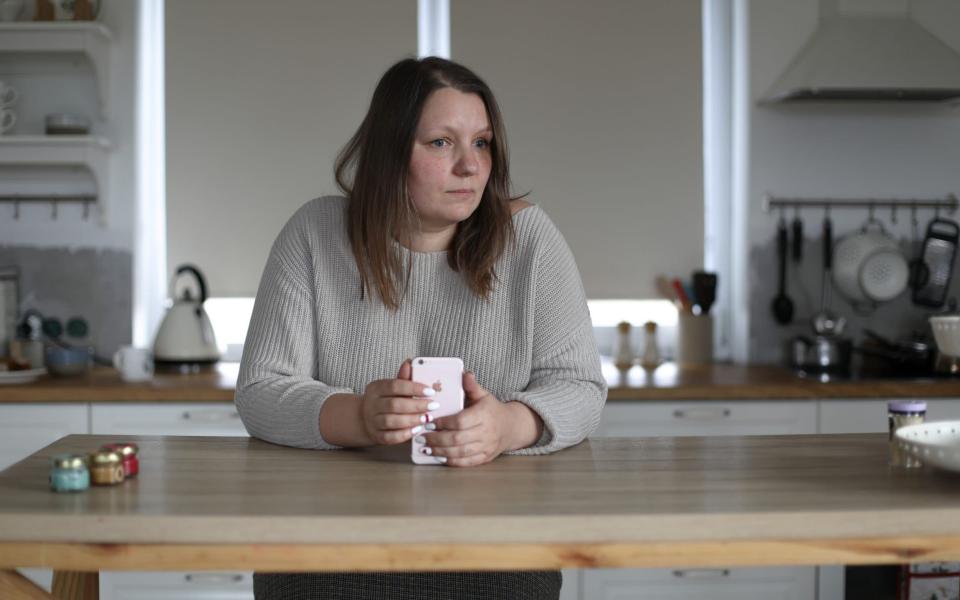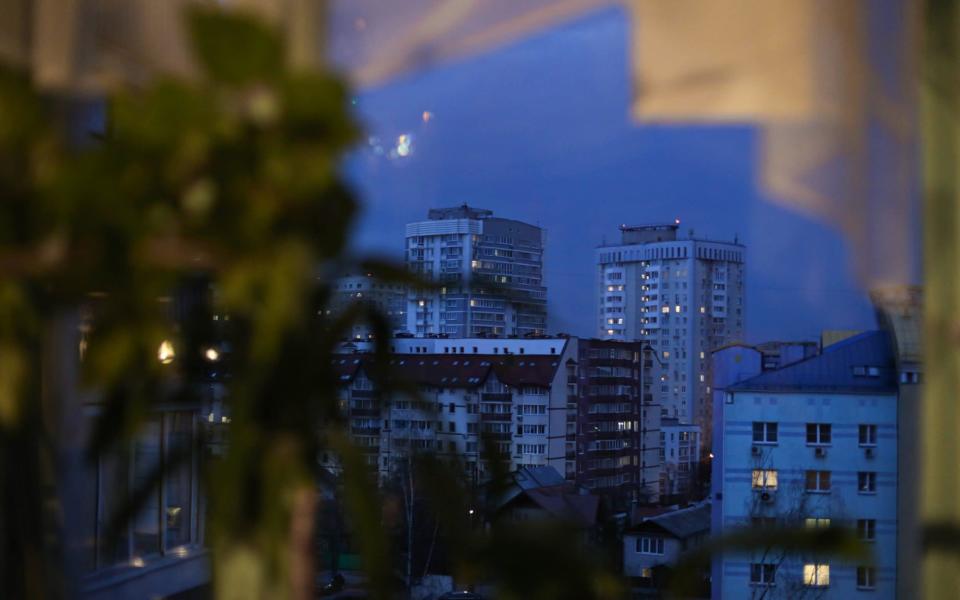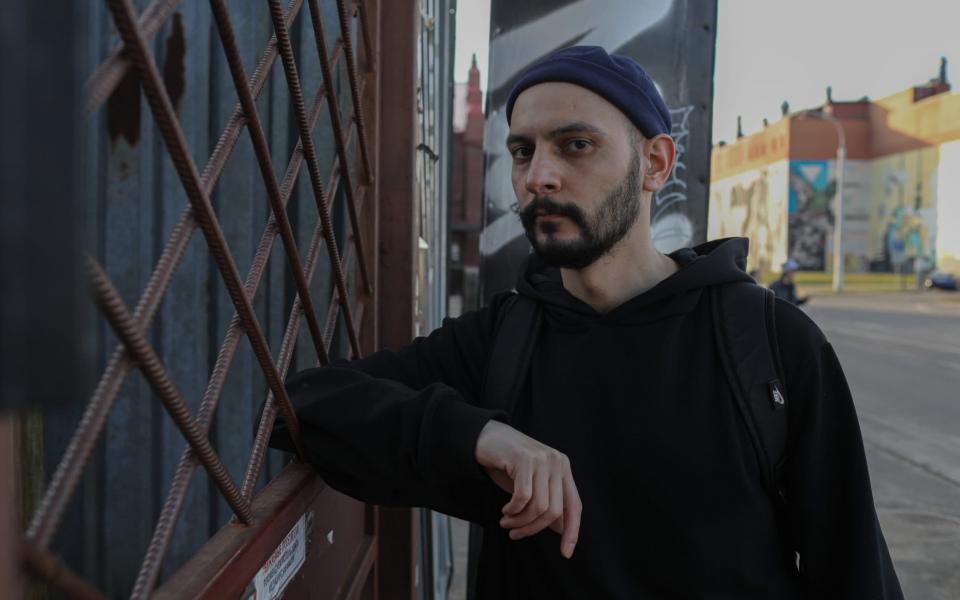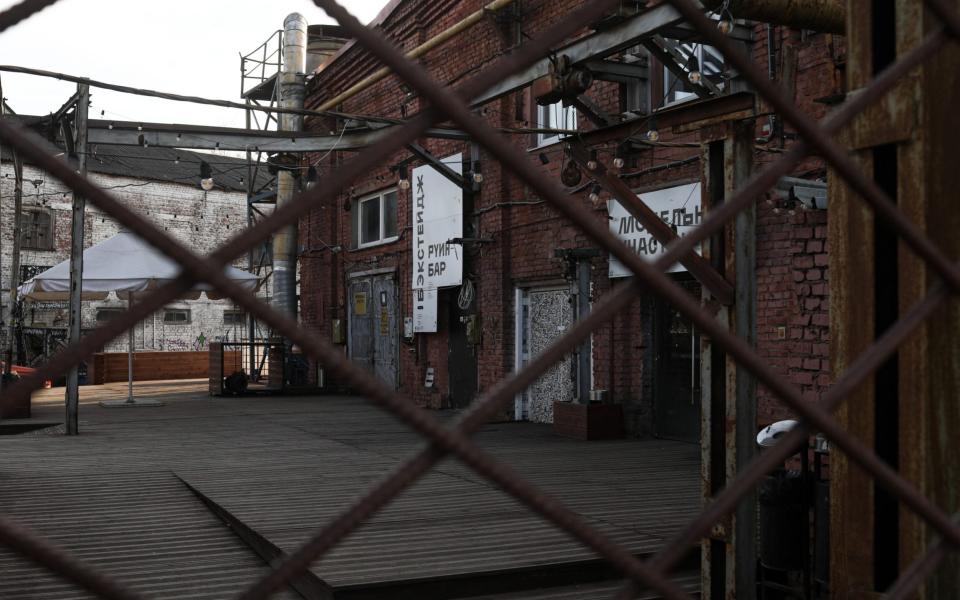Jailed for waving flowers in the street or holding tea parties: Life in the newly totalitarian state of Belarus

Lilia Suboch startles every time her doorbell rings. Her mother, sister, and brother have all been jailed for minor infractions, and her home of the outskirts of Minsk was raided two days earlier, leaving her terrified she will be next.
Eight months after a popular uprising nearly toppled Alexander Lukashenko, the Belarusian president of 26 years, authorities are rounding up hundreds of people and slapping them with short prison sentences for the most minor infractions, sowing fear in a country in the centre of Europe that is quickly turning into a totalitarian state.
Mrs Suboch’s relatives are all being kept at the same infamous detention centre. Her sister is serving 25 days, her mother five and brother six days in custody.

Protests in Belarus erupted in August when Mr Lukashenko was handed a landslide victory in a rigged election.
Enraged by violent arrests and hundreds of documented cases of torture, Belarusians demonstrated every weekend until the end of the year, demanding Mr Lukashenko step down.
But the Belarusian regime did not crack, and punished the dissent by unleashing what Belarusians call a “steamroller of repressions”.
Over the last few days, a 13-year-old schoolgirl was detained for spraying a protest slogan on the pavement, a mother of five was jailed and charged with extremism for tea parties with her neighbours, and a man whose car was attacked by a dozen riot police during the summer protests was sentenced to four years in prison for fleeing and pushing one of the policemen.
Since last August, investigators have brought charges against at least 2,300 people for their involvement in the protests.
Last month alone, 370 Belarusians were sentenced to administrative arrest, serving combined 6,107 days in custody, according to the rights group Viasna which lists 321 people as prisoners of consciousness.
Mr Lukashenko over the weekend accused US intelligence of plotting to kill him and said that he would announce "one of the biggest decisions" in his lifetime as president in the coming days.
Analysts speculate Mr Lukashenko is about to declare a closer union with Russia or even an invitation for Russian troops as he is expected to meet President Putin for talks on Thursday.
Innocuous gestures such as displaying the white-and-red protest colours have become a jailable offence in Belarus where two prisons including the notorious KGB jail proudly stand in the heart of the capital.
Holding a blank sheet of paper and waving flowers in the street is what earned Mrs Suboch’s 30-year-old sister Yulia four previous stints in jail. Most recently, she was found guilty for protesting illegally, joining several women dressed in white and red and carrying matching umbrellas.
Yulia’s brother and mother were arrested during a police raid last week as well, accused of resisting arrest.
“The discontent is snowballing and the goal of the government is to crush all forms of protest,” Mrs Suboch says. “We live in a time when you can get jailed for your thoughts.”
Pro-democracy activists used to rally in their own neighbourhoods in Minsk, to avoid the police who locked down the entire city centre.
But the bubble was burst when Roman Bondarenko, an activist in the neighbourhood known as Plaza of Change, was picked up by riot police and beaten to death in custody.

Now, Plaza of Change and a few other hotbeds of resistance in Minsk are patrolled by men in camouflage. Older Belarusians liken it to the country’s war-time Nazi occupation.
Lena, a 51-year-old accountant and a Plaza of Change resident, has already served three brief sentences for protesting. Her neck is dotted with white spots - traces of injuries from stun grenades that she sustained during the election night crackdown.
The government is poised to harshen the repressions. One draft law would allow police to open fire at unarmed people “at their own discretion” and under another, a Belarusian could be charged with extremism for merely speaking out in favour of the anti-Lukashenko movement.
Belarusian law enforcement in recent months infiltrated neighbourhood group chats, arresting and charging several people with extremism.

Lena, who thinks that a fourth arrest would mean she would face criminal charges under the new law, uses smaller chat groups with trusted contacts to coordinate sporadic protests: a walk with the white-red-and-white flag or something as innocent as throwing paper planes from a tower block in the memory of the local killed activist.
She says the protest movement has not been extinguished. “We didn’t go anywhere. We’re still here, and we will not back down.”
The Daily Telegraph had to rely on a network of trusted activists in order to meet Lena and other protesters, many of whom are considering leaving or have already packed their bags and moved elsewhere.
Katya, a successful IT executive who happily posed for a Western news photographer last summer, now has to hide her identity for fear of reprisals.

She counts the number of times she sees security forces in her neighbourhood on a given day and worries about displaying white and red candles in her window - something that has landed some of her neighbours in jail.
One family she knows recently had to flee fearing imminent arrest, another friend’s husband spent 15 days in jail, and a colleague is now a suspect in a criminal case.
“You sit and think: people around me are disappearing. What am I doing here?” Katya says.
“I wouldn’t be all that surprised, if next time they started shooting people in the street.”
She says she will leave by the end of the year if Mr Lukashenko is still in power.
The ongoing brain drain and repressions against the country’s creative classes are visible in Oktyabrskaya Street, a former industrial area which has recently been regenerated as a hipster hub.

Levon Halatrian, who owned a popular bar in the district before joining the opposition campaign last summer, counts himself lucky. The 35-year-old was arrested in August, beaten up and charged with organising riots but he was released six months later. He still has to serve a year of community service away from his family.
Mr Halatrian’s bar was on the premises of Ok16, a modern art gallery run by protest icon Maria Kalesnikava who tore up her passport to avoid forcible expulsion from Belarus last year and is now in jail on charges of conspiracy to seize power. Mr Halatrian says that he sensed fear after he was released.
“I was surprised by seeing so much fear in other people and myself, too: It wasn’t that scary in jail - the worst has already happened to you. Now, your situation can get so much worse because of the steamroller of repressions.”
The vast majority of Belarusian opposition leaders like presidential candidate Sviatlana Tsikhanouskaya have been pushed out of the country or jailed like Ms Kalesnikava.

Maxim Bogretsov is a rare opposition figure still working in Minsk.
The 48-year-old IT executive who moved back home last summer after living in the U.S. for twenty years, is confident about an inevitable regime change if not in the short term.
“We’re in a stalemate: authorities are facing a giant hole in their budget, a massive brain drain and pretend that everything is okay,” Mr Bogretsov says.
“We have the critical mass of a new generation of people who won’t accept the idea of living in Stalin’s 1930s.”

 Yahoo News
Yahoo News 
